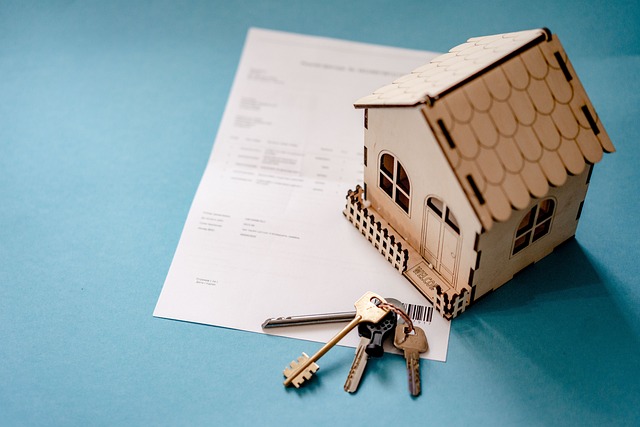Understanding Home Value: A Comprehensive Guide to Property Worth
Determining the value of your home is a crucial step in many financial decisions, from refinancing to selling. This guide will explore the various aspects of home value, helping you understand how to check your house price and what factors influence property values by address.

How Much Is My House Worth Now?
One of the most common questions homeowners ask is about the current value of their property. Your home’s worth can fluctuate based on various factors, including market conditions, local economic trends, and improvements you’ve made to the property. To get an accurate estimate, you can:
-
Use online valuation tools: Websites like Zillow, Redfin, and Realtor.com offer free home value estimators based on recent sales data and public records.
-
Consult a local real estate agent: Professionals with knowledge of your specific market can provide a more nuanced evaluation.
-
Hire a professional appraiser: For the most accurate assessment, especially for refinancing or legal purposes, a certified appraiser can provide an official valuation.
Remember that these methods provide estimates, and the true market value is ultimately determined by what a buyer is willing to pay.
What Factors Affect Property Values by Address?
Several key elements influence the value of a property at a specific address:
-
Location: Proximity to amenities, schools, and transportation can significantly impact value.
-
Property size and features: Square footage, number of bedrooms and bathrooms, and special features like a pool or garage affect pricing.
-
Condition of the home: Well-maintained properties with modern updates typically command higher prices.
-
Local market conditions: Supply and demand in your area play a crucial role in determining value.
-
Economic factors: Interest rates, employment rates, and overall economic health can influence property values.
-
Neighborhood trends: Upcoming developments or changes in the area can affect future property values.
Understanding these factors can help you better interpret and potentially influence your home’s value over time.
How Can I Check My House Price Accurately?
To get the most accurate assessment of your home’s value, consider combining multiple methods:
-
Online valuation tools: Use several reputable sites to get a range of estimates.
-
Comparative market analysis (CMA): A real estate agent can provide this report, which compares your home to similar properties recently sold in your area.
-
Professional appraisal: While more expensive, this option provides the most thorough and objective valuation.
-
Home inspection: Though not a direct valuation method, an inspection can reveal issues that might affect your home’s value.
-
Track local sales: Keep an eye on the selling prices of similar homes in your neighborhood.
By using a combination of these methods, you can gain a comprehensive understanding of your home’s current market value.
What Tools Are Available for Tracking Property Values by Address?
Several tools can help you monitor property values over time:
-
County assessor’s office: Many provide online access to property tax records, which include assessed values.
-
Real estate websites: Sites like Zillow offer “Owner Dashboard” features to track your home’s estimated value over time.
-
Home value mobile apps: Apps like HomeSnap or Trulia can provide quick value estimates and updates.
-
Subscription services: Some companies offer more detailed property value tracking for a fee.
-
Local real estate publications: These often provide insights into market trends and property values in specific areas.
Regularly checking these resources can help you stay informed about changes in your home’s value and local market trends.
How Do Home Improvements Affect Property Value?
Home improvements can significantly impact your property’s value, but not all upgrades offer the same return on investment:
-
Kitchen and bathroom remodels: These typically provide the highest returns, often recouping 70-80% of the cost.
-
Energy-efficient upgrades: Improvements like new windows or insulation can increase value and appeal to energy-conscious buyers.
-
Curb appeal enhancements: Landscaping and exterior improvements can make a strong first impression and boost value.
-
Adding square footage: Finishing a basement or adding a room can increase overall value, but the return varies by market.
-
Maintenance and repairs: While not glamorous, keeping your home in good repair is essential for maintaining its value.
It’s important to research which improvements are most valued in your specific market before making significant investments.
How Often Should I Check My House Price?
The frequency of checking your home’s value depends on your specific situation:
-
If you’re planning to sell: Check more frequently, perhaps monthly, to stay aware of market trends.
-
For refinancing purposes: Review your home’s value quarterly or semi-annually.
-
General homeownership: Annual checks are usually sufficient to stay informed about your property’s value.
-
In rapidly changing markets: More frequent checks may be warranted if your area is experiencing significant economic shifts.
-
After major improvements: Re-evaluate your home’s value after completing substantial upgrades or renovations.
Remember that short-term fluctuations are normal, and it’s more important to focus on long-term trends in your local market.
Understanding and tracking your home’s value is an essential aspect of homeownership. By staying informed about property values by address, regularly checking your house price, and knowing what factors influence your home’s worth, you can make more informed decisions about your property and financial future.




